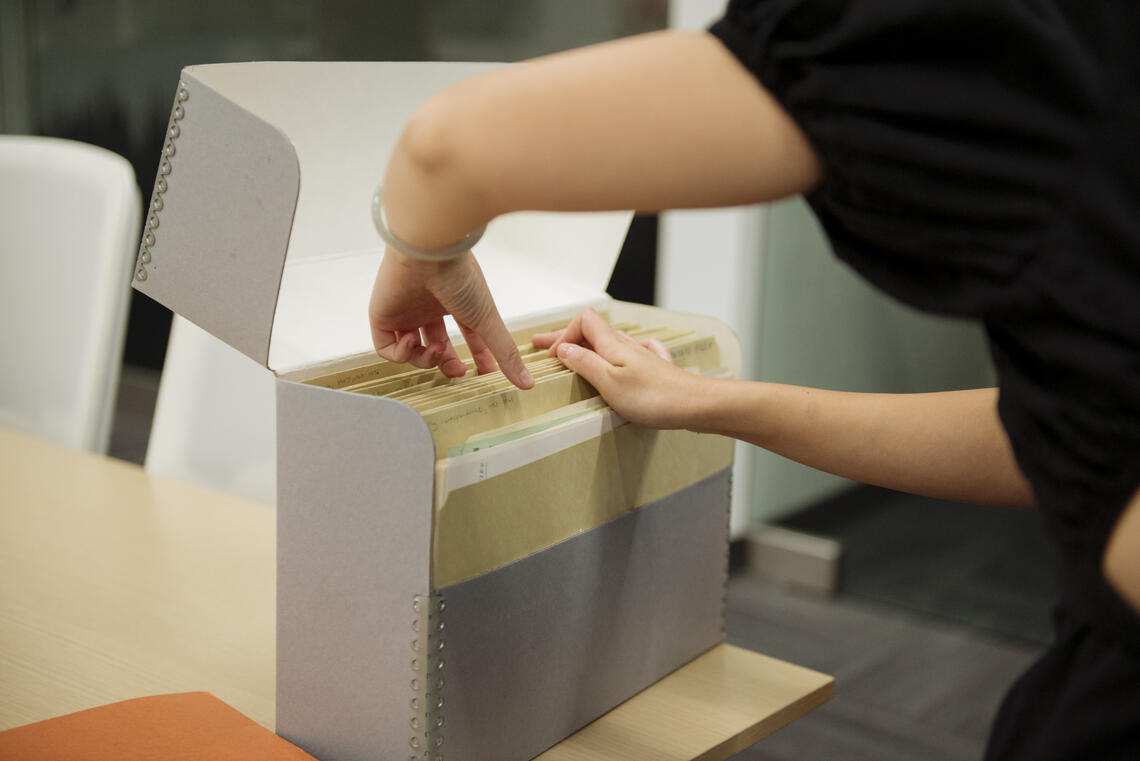Aug. 18, 2023
Undergrad digs into mouthwatering histories of Calgary’s International Avenue

You’re hungry. You don’t know what you want to eat. We’ve all been there. Now, imagine the medley of sounds and tastes along 17th Avenue S.E., known as Calgary’s International Avenue. In 35 blocks, you’ll find everything from Ethiopian injera to Tibetan momos — the avenue is famous for its diverse food culture, enough to fill you up and have you asking for seconds.
And the history of the area is just as rich.
That’s the mouthwatering subject of one undergraduate student’s research project this summer. Third-year history student Katie Qin was awarded funds from the Program for Undergraduate Research Experiences (PURE) to explore the historical foodways of Forest Lawn as part of the Calgary Atlas Project out of the Calgary Institute for the Humanities.
“When I heard about the idea for this research, I thought it was really so brilliant. I’ve lived in the northeast and shopped at those markets and eaten at those restaurants and as a new immigrant to Canada, it resonated with me.”

Nancy Janovicek, left, and Katie Qin look through Calgary records at the Glenbow Western Research Centre.
Elyse Bouvier
Qin is working on the research alongside Dr. Nancy Janovicek, PhD, professor in the Department of History, who is part of the steering group for the Calgary Atlas Project.
“The purpose is to tell the untold histories of Calgary,” Janovicek says. “I really fell in love with Forest Lawn as a really interesting community and one that’s shifting a lot.”
“Forest Lawn is such a misunderstood or misperceived community," Qin says, "and part of alternate histories is to tell untold stories and maybe change how people look at things and introduce new ideas.”
Janovicek says it was important to bring a student into this research. “She brings a different eye to it. I’m really impressed with the connections she’s been making between the different documents.”

Katie Qin has been assisted in her research by the expert staff at the Glenbow Western Research Centre.
Elyse Bouvier
Digging in the archives
Historical research can be a daunting task — and not always a tasty one. “My perception of research was mostly through professors presenting their research. This experience has shown me the not-so-glamourous side and how much work goes into it,” Qin says.
Much of Qin’s work this summer has been focused on digging through primary sources in the Glenbow Western Research Centre (GWRC). The archives and special collections room contains access to over 12 linear kilometres of archival material and more than 200,000 books but with the expertise of GWRC staff, Qin has found some interesting and relevant records in the collection.
“It’s taught me about the importance of librarians and archivists. Everybody works together in this ecosystem to produce the research.”
Illustrating history
By the end of the summer, Qin hopes to have more context clues into the food histories of Forest Lawn.
“It’s made me fall in love with Calgary as an area of intellectual research and an area of stories. There’s been a lot of research, especially on immigrants and minorities, done in the bigger cities in Toronto and Vancouver but not as many about Calgary.”
Eventually, the tedious work Qin has done of mapping immigration and census data in the area will be illustrated by a local artist as part of the Calgary Atlas Project. Like their other projects, the map could be anything. First Nations Stampede, a map describing details of First Nations involvement in the Stampede, was brought to life by artist Adrian Stimson on a bison robe with Blackfoot pictographic style.
Qin is excited to continue her involvement with the project beyond her PURE summer studentship. “The Calgary Atlas Project is a form of public history and they’re really trying to make history more accessible.
And I think that makes it more interesting.”
The PURE program awards up to $7,500 for undergraduate students in all disciplines to embark on an eight-, 12- or 16-week summer research project with a supervisor in an area of their interest. The program is an exceptional undergraduate research experience, with many participating students going on to further research in their careers. Katie Qin is one of 114 undergraduate students who have been awarded a summer studentship with PURE and one of approximately 350 undergraduate students who are working as researchers at the university this summer.
Applications for 2024 undergraduate summer studentships in research, including PURE, open in early December.
You can follow the work of the Calgary Atlas Project through the Calgary Institute for the Humanities and pick up their maps at many local bookstores.







